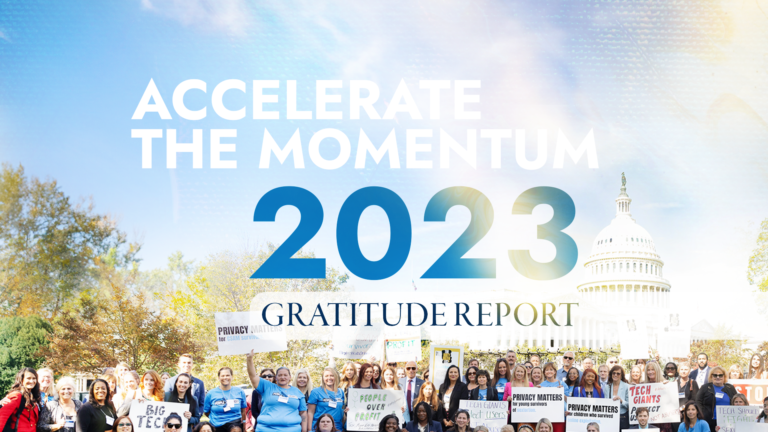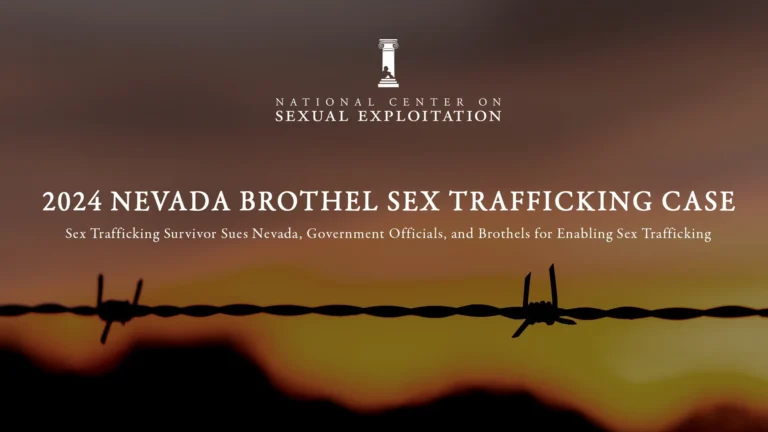In January, the National Center on Sexual Exploitation submitted an amicus brief to the Georgia Supreme Court urging the court to uphold a statute criminalizing obscene Internet contact with minors.
This statute is vital to protecting children from sexual predators in the digital age but was facing a First Amendment challenge. The American Center for Law and Justice recognized the significance of this case as well and their Chief Counsel, Jay Sekulow, was appointed special district attorney to represent the state at the Georgia Supreme Court. Mr. Sekulow defended the statute eloquently at oral argument before the Court in February. In a huge victory for children, on Tuesday, July 5, 2016, the Georgia Supreme Court upheld the statute! This was a very important step in protecting children and curbing the vast amount of sexual exploitation occurring in Internet space.
The statute at issue criminalized Internet contact with a child, or a person believed to be a child, containing “explicit verbal descriptions or narrative account of sexually explicit nudity, sexual conduct, sexual excitement, or sadomasochistic abuse that is intended to arouse or satisfy the sexual desire of either the child or the person.”
The appellant, Jack Bernard Scott, who was arrested for violating this statute, challenged its constitutionality claiming it was overbroad on its face—that it criminalized lawful speech protected by the First Amendment. Among the arguments his defense counsel made to the Court was that Scott had a First Amendment right to “talk dirty” to a child as long as this talk did not rise to the level of obscenity. But the National Center on Sexual Exploitation wrote to inform the court that sexual objectification of children by adults is inherently harmful to children and a form of child exploitation that is not protected speech. The Court agreed.
This was a huge victory in a time when child predators have instant, anonymous access to children all over the country via the Internet while at the same time the Internet remains fairly unregulated and unchecked.
Since the Internet’s earliest beginnings child sex predators were some of the first adopters of the technology and we have seen massive harms to children occurring online. Not only can children be lured and solicited for sex acts via online communications, but also they are often gravely harmed without ever meeting their predator in person. Children are frequently exposed to hardcore pornography, images of adult sex organs and sex acts via live webcam chat, coerced into sending nude photos of themselves which are then used to blackmail these children into sending more and increasingly explicit photos, as well as remote sexual abuse.
first adopters of the technology and we have seen massive harms to children occurring online. Not only can children be lured and solicited for sex acts via online communications, but also they are often gravely harmed without ever meeting their predator in person. Children are frequently exposed to hardcore pornography, images of adult sex organs and sex acts via live webcam chat, coerced into sending nude photos of themselves which are then used to blackmail these children into sending more and increasingly explicit photos, as well as remote sexual abuse.
As amazing and incredible as the Internet has been in promoting education, connecting humanity worldwide, and astronomically improving the free flow of ideas, it has also presented some very grave dangers. The First Amendment has always excluded child sexual exploitation and obscenity from its protection and it is important in our digital age that these same principles apply to online speech. The Georgia Supreme Court has recognized this and rightfully protected children from grave harm resulting from predatory and unprotected speech.
You can donate here to ensure the National Center on Sexual Exploitation’s Law Center continues to defend dignity across the nation.



